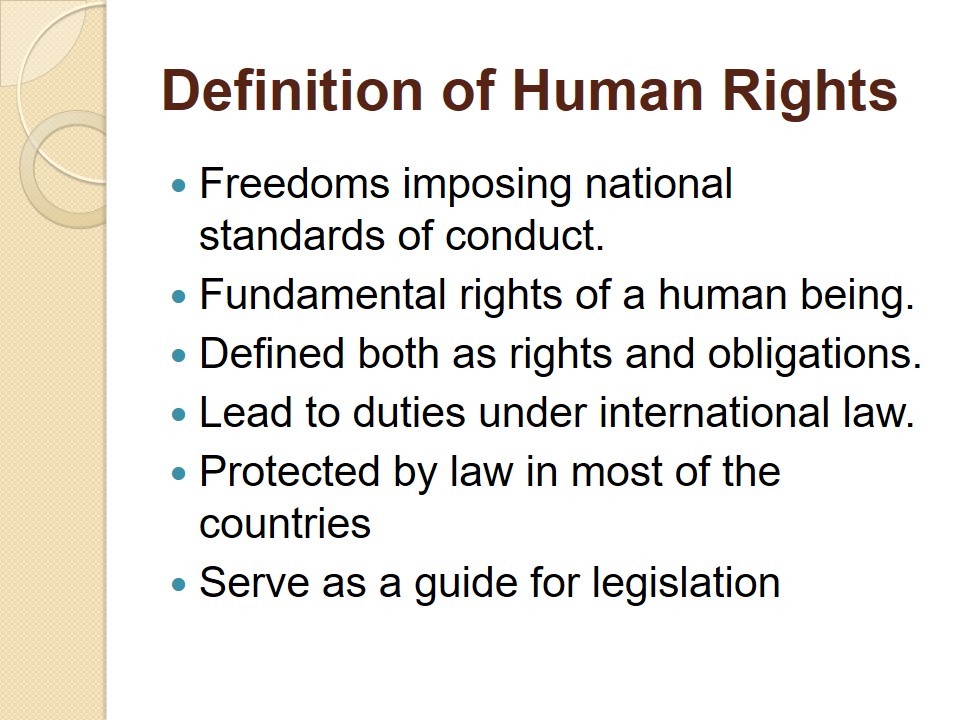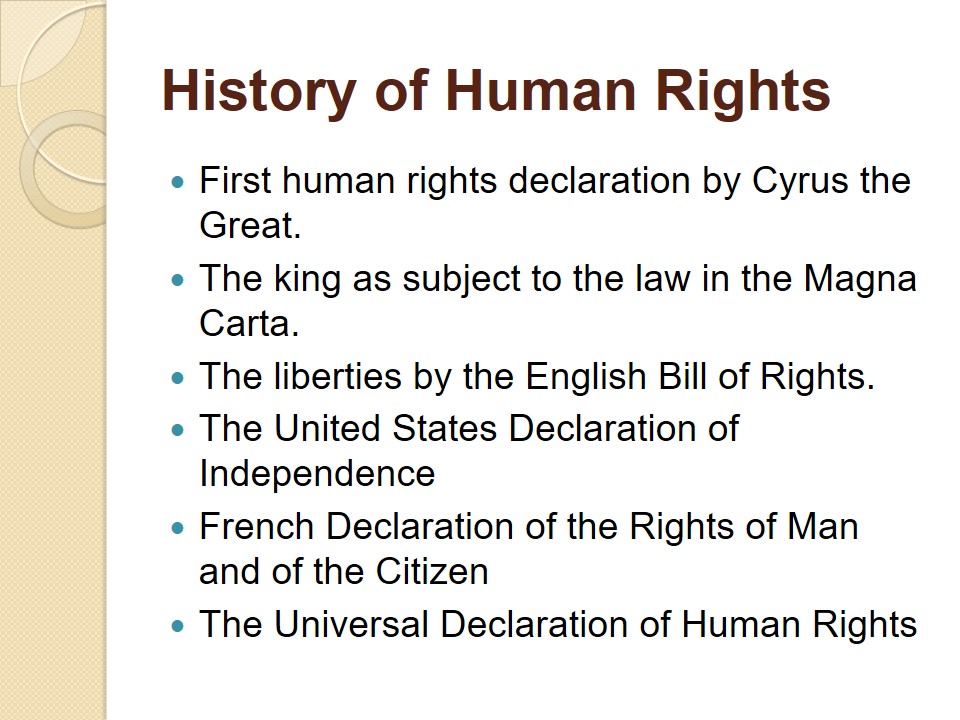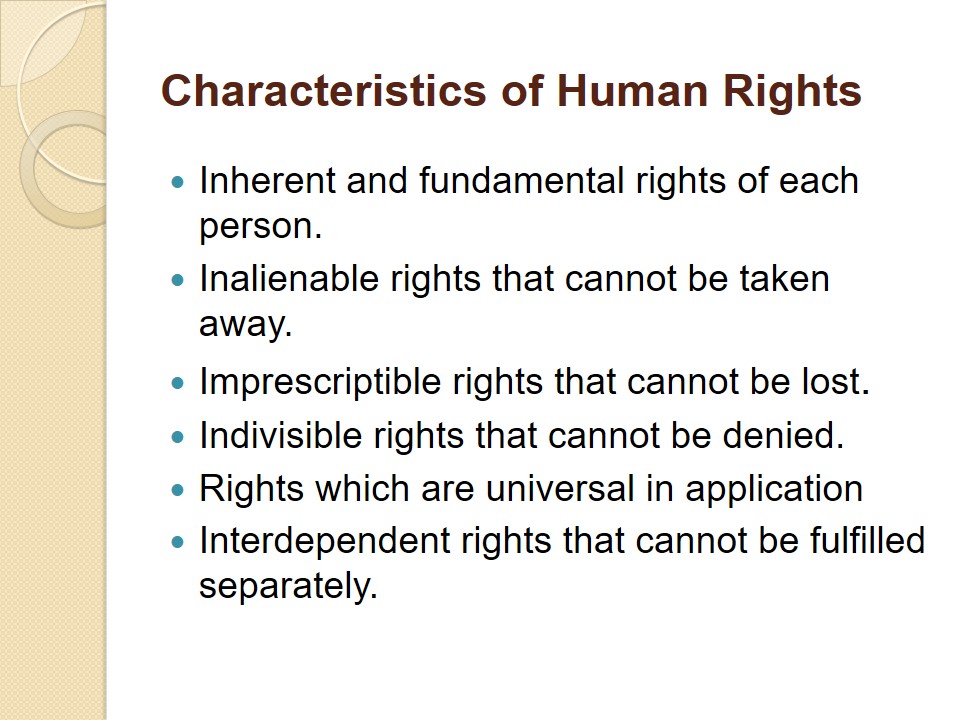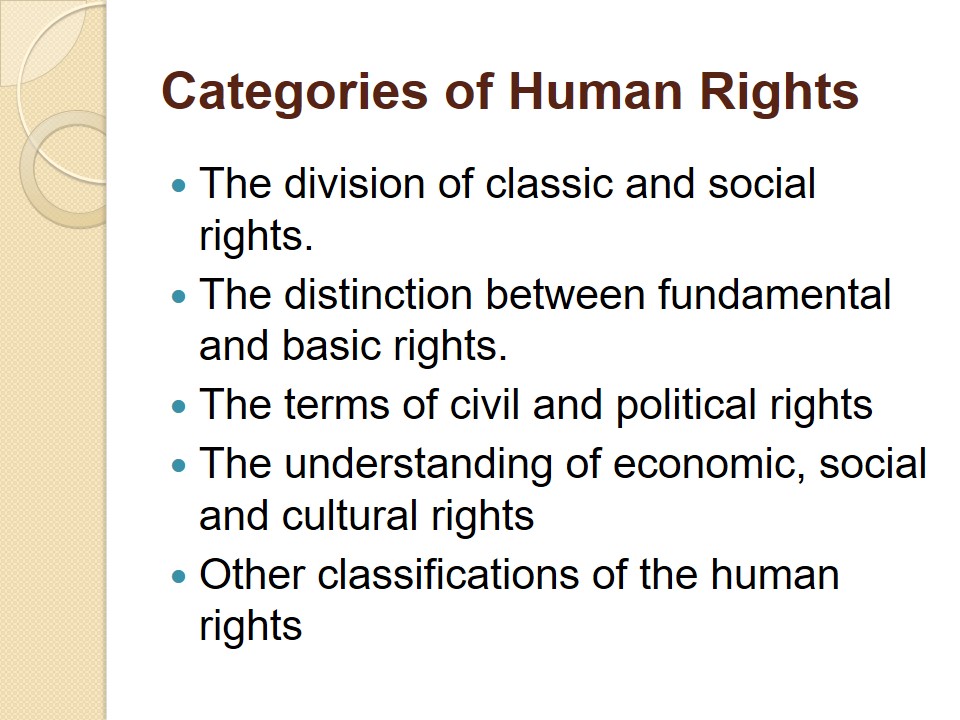- Freedoms imposing national standards of conduct.
- Fundamental rights of a human being.
- Defined both as rights and obligations.
- Lead to duties under international law.
- Protected by law in most of the countries.
- Serve as a guide for legislation.
“Human rights are freedoms established by custom or international agreement that impose standards of conduct on all nations” (“Human rights: Definitions, characteristics, classification, indivisibility & categorization,” 2017, para. 1).
They are referred to the fundamental rights given to every person because of the fact of being human. The human rights are both rights and obligations. The states are obliged to respect and protect the human rights under international law (“What are human rights?” 2017). Most of the countries protect the human rights at the state level. They also serve as a guide for legislation.

History of Human Rights
- First human rights declaration by Cyrus the Great.
- The king as subject to the law in the Magna Carta.
- The liberties by the English Bill of Rights.
- The United States Declaration of Independence.
- French Declaration of the Rights of Man and of the Citizen.
- The Universal Declaration of Human Rights.
“Throughout much of history, people acquired rights and responsibilities through their membership in a group” (Flowers, 2017, para. 2).
The history of human rights started in 539 BC with the Cyrus Cylinder, which was the first declaration of human rights in the world history (“A look at the background of human rights,” 2017).
In 1215, the English king John proclaimed the Magna Carta, making the king subject to the law. It was followed by the English Bill of Rights in 1689, which limited the power of the king. In 1776, the United States adopted the Declaration of Independence proclaiming people’s right to life and liberty. In 1789, France followed them with the Declaration of the Rights of Man and the Citizen stating citizens’ equality under the law. In 1948, the Universal Declaration of Human rights was adopted to protect human rights worldwide.

Characteristics of Human Rights
- Inherent and fundamental rights of each person.
- Inalienable rights that cannot be taken away.
- Imprescriptible rights that cannot be lost.
- Indivisible rights that cannot be denied.
- Rights which are universal in application.
- Interdependent rights that cannot be fulfilled separately.
The human rights have a number of basic characteristics.
They are inherent because they cannot be granted by any authority or purchased. They are fundamental because the life and dignity of a person are meaningless without them. These rights are inalienable because no one can deprive a person of them. Human rights are impossible to lose, even though some individuals are not able to use them. They cannot be divided or denied to any person. Human rights are universal, being the same for all people regardless their race, sex, social origin or political views. “Human Rights are interdependent because the fulfillment exercise of one cannot be had without the realization of the other” (“Human rights: Definitions, characteristics, classification, indivisibility & categorization,” 2017, para. 11).

Categories of Human Rights
- The division of classic and social rights.
- The distinction between fundamental and basic rights.
- The terms of civil and political rights.
- The understanding of economic, social and cultural rights.
- Other classifications of the human rights.
The social rights are usually guaranteed by the state, while classic rights do not require the intervention of the authorities. (“Definitions and classifications,” 2017).
Fundamental rights include the right to life and the inviolability of an individual. Basic rights refer to the rights dealing with material and non-material needs of a person.
The civil rights include the right to a public hearing and the right to legal assistance. Political rights include the right to vote, and freedom of assembly among them.
Economic rights are mainly the rights to property and work. Social rights establish the standard of life including the right to health care, food, and education. Cultural rights protect the interests of the creative people and researchers.
It is also possible to classify the human rights as freedoms, civil liberties, individual and collective rights, and the rights of the generations.

References
A look at the background of human rights. (2017). Web.
Human rights: Definitions, characteristics, classification, indivisibility & categorization. (2017). Web.
What are human rights? (2017). Web.
Definitions and classifications. (2017). Web.
Flowers, N., Human rights here and now. (2017). Web.